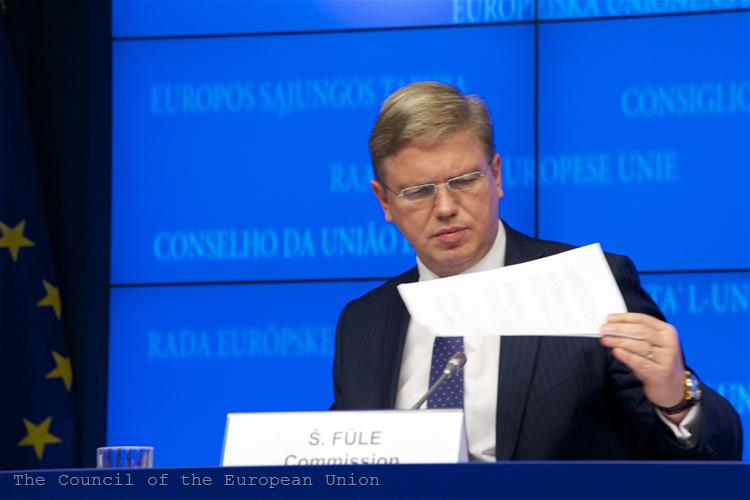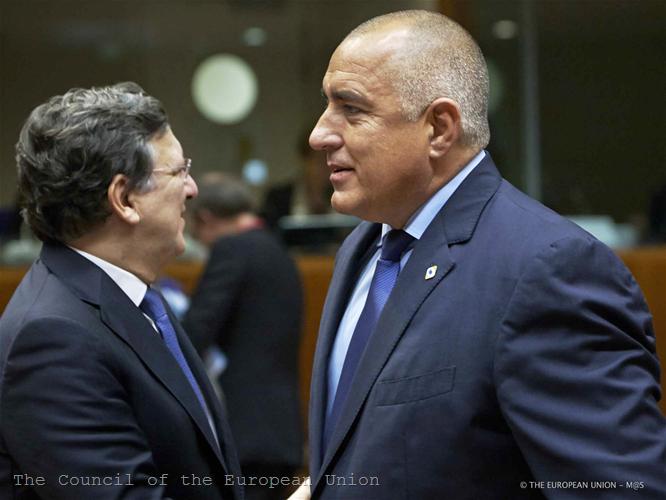The EU Common Security and Defence Policy Needs Emancipation
Hannes Lenk, intern, January 14, 2013
 Lately, more concerns over the state of the EU’s foreign policy have been voiced. One reason is the emancipation of EU foreign policy from the US. Although the cooperation between the EU and the US have spun close ties in the first term of the Obama administration, the European Council on Foreign Relations (ECFR) suggested recently that this might soon be about to change. With economic constraints occupying the centre of foreign policies, the US is likely to retreat from EU neighbouring areas such as the Caucasus, Russia, the Middle East and North Africa. Corollary consequence would be that the EU foreign policy will have to grow up and finally take care itself of its immediate neighbourhood. That pressure pushed the Common Security and Defence Policy (CSDP) onto the agenda of the December 2012 European Council.
Lately, more concerns over the state of the EU’s foreign policy have been voiced. One reason is the emancipation of EU foreign policy from the US. Although the cooperation between the EU and the US have spun close ties in the first term of the Obama administration, the European Council on Foreign Relations (ECFR) suggested recently that this might soon be about to change. With economic constraints occupying the centre of foreign policies, the US is likely to retreat from EU neighbouring areas such as the Caucasus, Russia, the Middle East and North Africa. Corollary consequence would be that the EU foreign policy will have to grow up and finally take care itself of its immediate neighbourhood. That pressure pushed the Common Security and Defence Policy (CSDP) onto the agenda of the December 2012 European Council.
Ambitious conclusions
In its conclusions, the European Council acknowledges that "in today's changing world the European Union is called upon to assume increased responsibilities in the maintenance of international peace and security in order to guarantee the security of its citizens and the promotion of its interests". In its general spirit, the conclusions underline the need to improve the operational effectiveness and efficiency of CSDP and strengthen cooperation with other relevant international actors such as the UN and NATO, but also among EU member states to develop the prerequisite defence infrastructure.
In particular, the Council highlights 6 specific issues that need to be tackled. The first can most adequately be summarised as an infrastructural expansion which allows a targeted use of civil and military capabilities and a timely response in the case of crisis situations. This is followed by the development of the aforementioned capabilities. At its heart is the idea of pooling and sharing of resources based on national cooperation between member states that improves operational effectiveness without the establishment of a European army. In an answer to the Dutch non-attached MEP Laurence J.A.J. Stassen in December 2012, the Council stressed that such an ambition is not on the agenda of the European Council, nor does the Lisbon Treaty provide for any stipulation to allow the establishment of a common military force on European level .
Instead, the Council urges the member states to work committedly towards closer cooperation in the civilian domain and the field of defence in order to allow for addressing the shortcomings in earlier missions despite today’s financial constraints and to enhance their cooperation with international peacekeeping organisations. As a third point, the Council raises the strengthening of the European defence industry as a prerequisite for an independent, strong and emancipated European defence policy. The development of an “integrated, sustainable, innovative and competitive European defence, technological and industrial base” should, is said in the conclusions, be  achieved by creating “synergies between civilian and military research and development” and the promotion of intra-EU public procurement that invites SMEs yielding greater benefit for the European industrial sector. This aspect does not only take into account the prerequisite to sever the European defence industry from interdependencies with the US and other third country industrial sectors, but might inject new investment into the European economy.
achieved by creating “synergies between civilian and military research and development” and the promotion of intra-EU public procurement that invites SMEs yielding greater benefit for the European industrial sector. This aspect does not only take into account the prerequisite to sever the European defence industry from interdependencies with the US and other third country industrial sectors, but might inject new investment into the European economy.
Points four and five focus on regional strategies, especially regarding the Adriatic and Ionian region and the Baltic Sea; the Enlargement and the Stabilisation and Association Process, respectively. Lastly, the conclusions classify Syria and the “increasingly deteriorating situation” in the country as a matter of priority for the Union’s CSDP. It underlines the role of the EU in the resolution of that conflict and emphasises its commitment to help in the political transition and promote human rights.
Barking dogs never bite
The conclusions should generally be welcomed as a step in the right direction. Emphasising the necessary change for the CSDP, they push towards independence and self-sufficiency on multiple levels, taking into account not only foreign policy aspects but drawing attention also to the Union’s production and technology sector with an effort to strengthen the defence industry. This said, the EU foreign policy faces massive challenges stemming from external and internal sources. First and foremost, the global economic crisis impacts foreign policy decisions, drawing more attention to the economic concerns related to military deployment and defence. The appointment of Chuck Hagel as US Secretary of Defence is expected to yield considerable changes in the US foreign policy, including a less interventionist approach and a significant spending cut, as Douglas McMacgregor writes in the Time Magazine.
These policy changes are likely to come at the expense of a focus on the direct EU neighbourhood including the Western Balkans, the Caucasus and North Africa. This is supported by the appointment of John Kerry as Secretary of State who is unlikely to change the US foreign policy focus on issues in the Middle East, Asia and China. That is the root of the problem and the reason why EU CSDP needs to emancipate. But economic concerns are not only likely to affect the EU–US relationship, but imminently shift the centre of the debate on EU level. With toughening budget talks on the 2014 – 2020 EU Multiannual Financial Framework (MFF), the EU budget is likely to experience cuts in the areas of foreign affairs and developing aid posing a real threat to the foreign policy agenda.
Another issue is the threat of an internal EU break-up over economic and budget concerns, amongst others. Variable geometry driven by the EU to facilitate individual member states complicates the introduction of a coherent foreign policy. The current attitude of the UK with regard to its EU membership illustrates the problem rather magnificently. The European Council successfully demonstrated its will to commit to a common foreign policy. It leaves the general impression that the EU has grown to the challenge of turning around its introvert state of foreign policy, demolish old dependencies and establish an effective and resource efficient CSDP. After all, the  propositions made are tackling precisely issues of operational effectiveness and responsiveness in times of crisis.
propositions made are tackling precisely issues of operational effectiveness and responsiveness in times of crisis.
However, though the model of cooperation or “sharing and pooling” as it was eloquently labelled constitutes a cost effective way of enhancing the foreign policy structure, it is questionable whether its real purpose is to conceal the EU’s executive impotence regarding matters of security and defence policy. The conclusions uncover an ambitious plan with a preliminary deadline the end of 2013. Such actions require funding and it will transpire over time whether, in the light of budget cuts, the cooperative model will bring real advantages to cost-efficiency rather than a bureaucratic fight of 27 national foreign security and defence policies, sending the ambitious progress into lengthy delays. Barking dogs never bite! Or in the case of the CSDP developments it might just go on barking for a very long time.
 | © The Council of the European Union
| © The Council of the European Union | © European Parliament
| © European Parliament | © The Council of the European Union
| © The Council of the European Union